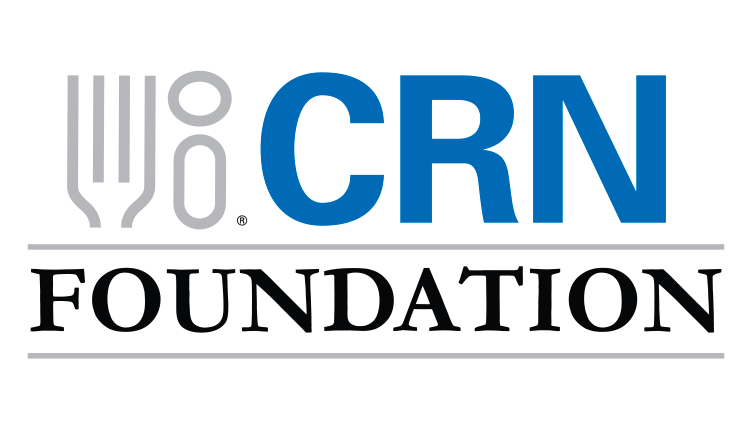Promotional Features
Empowering consumers to take charge of their immune health through vitamin D education
When the COVID-19 pandemic began, the world was thrown into a frenzy with shutdowns, deciding which employees were “essential” or not, and a sudden uptick in people wanting to boost their immunity against the unknown.
Faced with a new virus with devastating health effects, Americans narrowed their focus more than ever on improving their overall health and well-being. Their first priority became finding ways to boost our immune systems.
In July and August 2020, the Council for Responsible Nutrition (CRN) and Ipsos deployed a national consumer survey to gain insights on usage and attitudes about dietary supplements in light of the COVID-19 pandemic. The CRN COVID-19 Survey on Dietary Supplements found more than two in five (43 percent) dietary supplement users changed their supplement routines since the start of the pandemic.
The results also showed that among supplement users, overall immune support (57 percent) and health/wellness benefits (53 percent) were the most common reasons why users increased their intake during the pandemic.
The data also revealed that the multivitamin (59 percent), vitamin C (44 percent), and vitamin D (37 percent) saw the highest boost in supplement intake during COVID-19, the latter two nutrients being known to support immune health.
Fast-forward to January 2021. The science team at CRN began to see study after study be published that examined the relationship between vitamin D and COVID-19. “We were fascinated at the amount of research being conducted examining the potential relationship between vitamin D and COVID-19,” stated Steve Mister, CRN’s president and CEO, who also serves on the CRN Foundation Board of Directors.
During this time, America was also existing in an information ecosystem filled with conspiracy theories and junk science. Consumers were in search of factual information to maintain their and their family’s health. CRN believed consumers needed access to science-backed information to make decisions about their health, leading to the creation of Vitamin D & Me! The project would be managed through the CRN Foundation, a 501(c)(3) non-profit foundation of the dietary supplement industry for the purpose of educating people about the beneficial, safe and responsible use of dietary supplements and their ingredients as part of a healthy lifestyle.
At this point, the CRN Foundation turned to leading nutraceutical and pharmaceutical life sciences services company Nutrasource to help develop the scientific content for the project. “Consumers today live in an age where disinformation and conspiracy theories are frequently presented as fact,” said Kendall Ridley, CRN’s senior director of communication. “That’s why it was critical for this project to be science-driven, not message-driven. Consumers needed to know this isn’t a PR campaign—it is factual information on how vitamin D supports the immune system.”
Vitamin D & Me! launched in May 2021, sharing research summaries, video interviews with the nation’s top vitamin D researchers and clinicians, news, and education about the nutrient in a consumer-friendly format. The initiative focused on U.S. consumers ages 55 and up, as they were a group particularly vulnerable to the effects of the virus.
In November 2021, the CRN Foundation applauded research being published that demonstrated significant links between vitamin D and COVID-19. Multiple meta-analyses revealed that higher blood levels of vitamin D appear to be correlated with lower incidence or severity of COVID-19 in most but not all reviews of the research.
The 13 meta-analyses were generated from more than 100 clinical trials published since the onset of the pandemic. While most of the meta-analyses examined blood levels of vitamin D and COVID-19, two exclusively examined vitamin D consumption in relationship to the illness.
Most of the reviews found higher blood levels of vitamin D appear to be correlated with lower incidence of COVID-19. Several meta-analyses found greater severity of and mortality from COVID-19 were associated with lower vitamin D levels.
“This growing body of research does not indicate that vitamin D is a substitute for vaccines, mask wearing, social distancing, or other behaviors to mitigate the spread of the coronavirus,” said Luke Huber, ND, vice president of scientific and regulatory affairs at CRN, “but the data does suggest that vitamin D levels may play a role, in combination with other therapies, in strengthening the immune system to resist the virus.”
CRN's 2021 Consumer Survey on Dietary Supplements revealed 76 percent of respondents trust medical providers for reliable information on dietary supplements. Thirty-four (34) percent of respondents specifically mentioned trusting registered dietitians and nutritionists about supplements. That is why phase two of Vitamin D & Me! is focused on connecting the research findings with dietitians and nutritionists, which requires building and strengthening relationships with these health care practitioners.
To that end, the CRN Foundation sponsored this year’s Shopping for Health, an event bringing together grocery store dietitians representing nearly 10,000 store locations to provide them with helpful nutrition updates and useful consumer information.
A delegation from CRN is attending this year’s Shopping for Health event, where grocery store dietitians from more than 65 national retailers will converge in Salt Lake City, Utah, in July. A coordinated digital outreach campaign will also be part of this new phase.
To date, the Vitamin D & Me! website has tracked and summarized more than 100 clinical studies on vitamin D and COVID-19. More than 166,000 unique users have visited the site to get information about vitamin D and how the nutrient affects their health status. Learn more at vitamindandme.org.
The Council for Responsible Nutrition (CRN), founded in 1973, is a Washington, D.C.-based trade association representing more than 200 dietary supplement and functional food manufacturers, ingredient suppliers, and companies providingservices to those manufacturers and suppliers. In addition to complying with a host of federal and state regulations governing dietary supplements and food in the areas of manufacturing, marketing, quality control and safety, our manufacturer and supplier members also agree to adhere to additional voluntary guidelines as well as to CRN’s Code of Ethics. For more information, visit www.crnusa.org. Follow us on Twitter @CRN_Supplements and LinkedIn.

